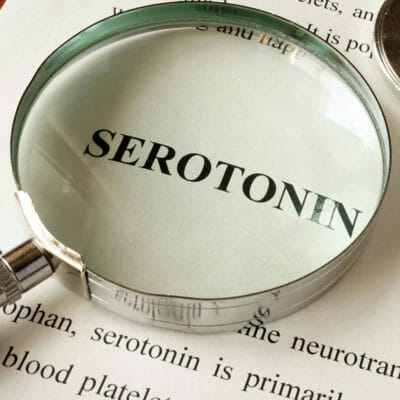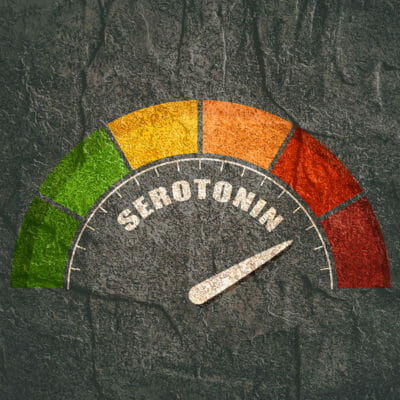Last Updated on May 27, 2021 by
Alternative to Meds Editorial Team
Written by Lyle Murphy
Medically Reviewed by Dr Samuel Lee MD
Table of Contents:

Last Updated on May 27, 2021 by
Alternative to Meds Editorial Team
Written by Lyle Murphy
Medically Reviewed by Dr Samuel Lee MD

When faced with a confusing or concerning medical issue, we often rely upon the knowledge and expertise of medical professionals when it comes to treatment options, trusting that they are making the choice that is in our best interests. However, that also means that we often don’t perform our due diligence when it comes to researching the substances we are putting into our body. Worse, many of us fail to explore any alternative solutions. As it turns out, there’s a lot more to some of the drugs we take than meets the eye.
While fluoxetine is generally classed as an antidepressant, it is more specifically an SSRI, or selective serotonin reuptake inhibitor. The aim of SSRIs is to help increase the level of serotonin present in the brain. Serotonin, often described as “the happy hormone,” plays a significant role in mood stabilization, promoting feelings of happiness and overall wellness. Serotonin also regulates certain other functions of the body, such as digestion, sleep, and healing.
Like all other hormones, it’s necessary to have a precise balance of serotonin in your body. If your brain produces too much or too little, you are bound to experience a significant impact. In fact, serotonin imbalances can cause serious issues.

Lanfear’s Bane at English Wikipedia, CC BY-SA 3.0, via Wikimedia Commons

Elevated levels of serotonin can be problematic as well. Instances where there is too much serotonin present may lead to serotonin syndrome. Some of the more visible symptoms of serotonin syndrome are general agitation, excessive sweating, and shivers. Those experiencing serotonin syndrome may also exhibit high blood pressure and disruptions to bodily functions tied to serotonin-like nausea, diarrhea, trouble sleeping, and more.
SSRIs are meant to help increase the amount of serotonin in your body and are primarily prescribed to those experiencing a serotonin deficiency. Understanding how SSRIs work starts with acknowledging that, in addition to being a hormone, serotonin is also a neurotransmitter.
Neurotransmitters have the task of facilitating communication between various parts of your body, transmitting signals from the neurons to other cells. As a neurotransmitter, after delivering its message, serotonin is reabsorbed into the nerve cells in your body. During that process, serotonin also carries out the other positive bodily functions discussed previously. However, when you produce reduced amounts of serotonin, there isn’t enough present during the transmitting process to have the desired impact.
SSRIs are not able to simply force your body to produce more serotonin. Instead, they target the reabsorption process, preventing the nerve cells from absorbing the serotonin. Since the serotonin isn’t reabsorbed, it can go on to carry out its other various tasks throughout your body.
Fluoxetine was created by three researchers at Eli Lilly and Company. Like many drugs, fluoxetine was not originally developed for its present purpose. Instead of depression, the road to the creation and eventual mass marketing of fluoxetine started with an attempt to treat high blood pressure. While the drug showed some promise in early animal trials, it was ultimately unsuccessful in human trials. Another avenue explored was using Prozac to combat obesity, but the drug was not successful in that application either.
After repeated failures, Eli Lilly eventually found redemption in an entirely different area: depression. The company conducted an initial trial on patients with mild depression, which supported the evidence that the drug could be used to treat this mental health issue. In fact, all participants reported feeling less depressed after taking the drug. However, it should be noted that only five participants were included in the trial. Still, that was enough evidence for Eli Lilly to move forward with renewed confidence, winning FDA approval in 1987 and debuting on the market merely a month later. Within the first year, the drug generated millions in product sales.
The main angle of the promotional materials advertising Prozac used the guise of teaching vital information about depression to consumers, cautioning the public about the dangers of remaining depressed while extolling the benefits of Prozac. This came at a time where previous negative experiences with the side effects of antidepressants weighed heavily upon the populace, making the promise of an exciting, effective new drug even more enticing. Prozac became a trendy choice, recommended by celebrities and referenced all over the media.

Tom Varco, CC BY-SA 3.0, via Wikimedia Commons
In addition to targeting those with depression, Prozac was promoted towards increasingly larger groups of people to continue capitalizing on the drug’s popularity. Not only was it recommended to those with diagnosed depression and anxiety, but it was also offered as a potential cure for those who simply struggled with shyness or those looking for an easy way to feel happier. Over time Prozac was even marketed towards children, including those under the age of five.
The biggest challenge fluoxetine faces is the truth about its effectiveness. Given the general knowledge available about serotonin, SSRIs and how they work together, it seems like addressing depression via an SSRI should be a straightforward process. Low serotonin equals depression, so a drug that helps you increase serotonin should cure it. What could possibly be missing in this conversation? In fact, the conversation about the hype surrounding Prozac is often missing nuance and context.
It’s true that there is an observed relationship between serotonin levels and the listed functions of your body. However, like the other hormones and neurotransmitters in your system, serotonin does not work in isolation. There are many distinct factors that could potentially have an impact on the various facets of your health, including depression. Under certain circumstances, our emotional state and stress levels can actually affect our brain chemistry. This begs the question: are reduced serotonin levels more of a symptom of depression than the source?
While a correlation certainly exists between serotonin levels and the presence of mental health issues, there is no evidence to suggest that low serotonin is the main cause. Nor is it safe to say that increasing serotonin levels will fully eliminate depression. In fact, in 2003, the National Health Service in the UK released a public statement denouncing the use of Prozac in those under the age of 18 while citing studies that showed only a trivial difference between the performance of the drug and that of placebo sugar pills.
In addition to questions about its value as an antidepressant, Prozac also presents some significant risks. First, common negative side effects include nausea, increased anxiety, trouble sleeping, and fatigue. While less rare, some patients also report significant changes to their mood, uncontrollable muscle spasms, tremors, and a decreased libido. One of the most serious possible side effects is increased thoughts of suicide.

Finally, there is the matter of withdrawal. To stop using Prozac, it’s necessary for patients to slowly taper their dosage because stopping suddenly can lead to withdrawal syndrome. Symptoms of withdrawal syndrome include digestive issues like nausea and vomiting, overall dizziness, difficulty with motor control, and trouble sleeping. In fact, it’s possible for your body to adapt so thoroughly to Prozac that it becomes physically dependent on it just to function normally, making it even more difficult to transition away from use.
Often, the names of Prozac, Zoloft, Luvox, and other drugs are easily confused, as they are all classified as antidepressants and SSRIs. In fact, in everyday conversations surrounding
medication meant to treat common mental health issues like anxiety and depression, the three are used so interchangeably it might make a person wonder, what is Luvox (fluvoxamine)? Is Luvox the same as Prozac? Is there a difference between Prozac and Zoloft?
In fact, each of these drugs has a different active ingredient. As we know, Prozac depends on the active ingredient fluoxetine. Meanwhile, Zoloft has the active ingredient sertraline, and Luvox has the active ingredient fluvoxamine. All these ingredients have the same basic purpose, but they affect your body in diverse ways. For example, Prozac has different withdrawal symptoms than Zoloft, Luvox side effects differ from Prozac’s, and Zoloft uses differ a bit as compared to Luvox uses. That’s why it’s important to apply the same level of critical thinking to every drug you take, regardless of how similar it might seem to others you’ve tried. Although both Prozac and Zoloft are Luvox alternatives, the smallest of differences could lead to a significant impact on your health.
Many people have reported success with Prozac and other SSRIs. However, many people have reported significant side effects and failures as well. Unfortunately, the way the media and the medical community frame information about Prozac is often skewed towards the positive, despite what the research indicates. That’s why it’s extremely important to be a strong advocate for your own health, starting by becoming as well informed as possible about any new medications. Learning background information and your options prior to introducing a new substance into your body could significantly impact your quality of life.
Sources:

Lyle Murphy is the founder of the Alternative to Meds Center, a licensed residential program that helps people overcome dependence on psychiatric medication and addiction issues using holistic and psychotherapeutic methods.

Can you imagine being free from medications, addictive drugs, and alcohol? This is our goal and we are proving it is possible every day!
Read All StoriesView All Videos